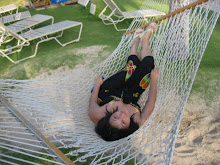Later that day, as I watched So You Think You Can Dance (I LOVE that show), tornado warnings scrolled across the bottom of the screen. Areas about 2 1/2 - 3 hours away were told to take proper emergency precautions. They were also calling for severe thunderstorms in my city and surrounding area. As a matter of fact, a few years ago a tornado whipped through the school across the street and cause so much damage, they had to rebuild. What would everyone do if their city was destroyed?
Then to top it all off, yesterday and today in Toronto, there were major riots protesting the G20 Summit. They were smashing store and bank windows, attacking police officers, smashing cars, and lighting police cruisers on fire. Anyone who lives or works in the Toronto City center had to deal with absolute craziness! Luckily the police are keeping things relatively under control (over 600 people have been arrested) but what would we all do if things continued to get out of control?
I'm not trying to be a fear monger or anything. What I am trying to say is that we need to be prepared for such emergencies. In my church, the leaders have been emphasizing emergency preparedness and strongly advising us to have a long term supply of food, water, and other provisions. It's challenging to build up such a supply and takes a lot of time and money to do so. I actually went to the store house on Saturday and canned $70 worth pf wheat, beans, sugar, oats, etc for our long term storage, but I'm not going to discuss long term storage right now. What I am going to discuss is a 72-hour emergency pack.

The government actually had commercials a few years ago urging everyone to get a 72-hour emergency pack ready just in case we were ever told to evacuate suddenly. My mother is a HUGE stickler on 72-hour emergency packs and gave us all one for Christmas one year. It doesn't take long to put one together and you probably have most of the stuff needed in your home already.
Here's a list of items to pack in your backpack.
3 days supply of food and water
1. Granola bars
2. Trail Mix or Dried fruit
3. Canned tuna, beans, stew, or pasta
4. Juice boxes
5. Other snacks
6. 1 Gallon of water per person
Bedding and Clothing
1. Change of clothing, including long and short sleeved tops, pants and shorts
2. Jacket
3. 3 pairs of underwear and socks
4. Rain coat
5. Hat, gloves, scarf, boots (only in winter)
6. Sleeping bag (try to purchase one at a specialty camping store that rolls up to the size of a Nalgene bottle)
7. Plastic tarp
Fuel and Light
1. Battery free flashlight. I got mine for $5 and all I need to do is shake it for a few seconds before turning it on.
2. Flares
3. Glow sticks. You'll need these if there's ever a gas leak. It's the only source of light that will not cause a spark
4. Candles
5. Waterproof matches
Other Equipment
1. Wind up radio
2. Can opener
3. Dishes/Utensils
4. Shovel
5. Axe
6. Pen and Paper
7. Pocket Knife
8. Rope
9. Duct tape
Personal Supplies
1. First aid kit and supplies
2. Toilet paper (in a ziploc bag)
3. Feminine products (in a ziploc bag)
4. soap, shampoo, hand sanitizer, dish soap
5. Tooth brush and tooth paste
6. Acetaminophen, Ibuprofen, allergy meds, children's medication etc.
7. Prescription Medication (for 3 days)
8. Extra contact lenses and solution
9. Diapers, wipes, and bum cream (if applicable)
10. Sun screen (including SPF lip balm), and bug repellent
Personal Documents and Money (store in a waterproof container)
1. Legal Documents (Birth/Marriage Certificates, Wills, Passports, Contracts, etc)
2. Vaccination Papers
3. Insurance Policies
4. Cash - strongly recommend rolls of coins for vending machines, toll booth, etc
5. Credit Cards
6. Pre-paid phone cards
Notes
1. Update your 72 Hour Kit every six months (put a note in your calendar/planner) to make sure that: all food, water, and medication is fresh and has not expired; clothing fits; personal documents and credit cards are up to date; and batteries are charged.
2. Small toys/games are important too as they will provide some comfort and entertainment during a stressful time.
3. Older children can be responsible for their own pack of items/clothes too.
4. You can include any other items in your 72 Hour Kit that you feel are necessary for your family's survival.
5. Some items and/or flavors might leak, melt, "flavor" other items, or break open. Dividing groups of items into individual Ziploc bags might help prevent this.
Tomorrow for family night, we're going to update our 72-hour emergency packs and make one for my son, since he doesn't have one yet. It's important to be prepared because as we saw this week, anything could happen.
For more important information on being prepared visit www.getprepared.gc.ca
Me Ka Aloha
- Elisabeth

I am totally making 72 hr packs for all of us this summer! We live ina peacefull area but you never know! Thanks for the reminder!
ReplyDeleteHey Elisabeth,
ReplyDeleteI didn't know you had a blog. This is another great kick in the pants to get prepared.. I need it. The earthquake was very strong here. I was reading in my room and actually though our 80 yr old building was collapsing. I grabbed Jax out of his nap and ran outside bare foot..lol...yikes.